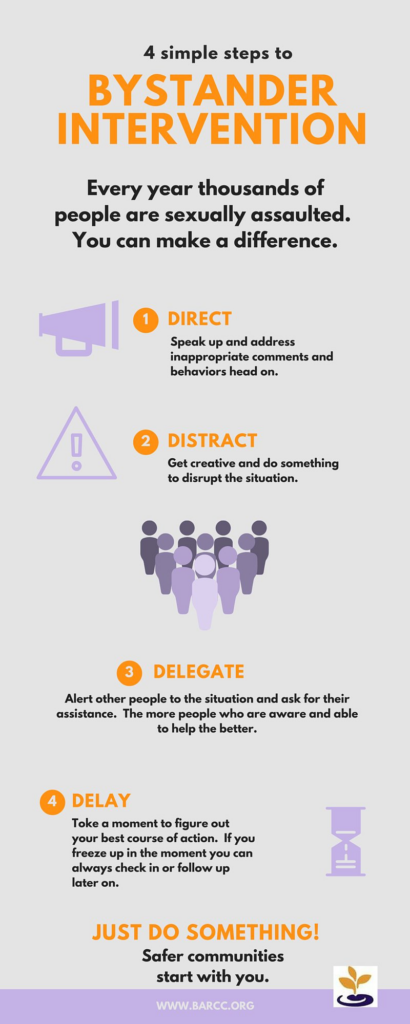The things I have learned this summer about the importance of bystander intervention have been mostly to do with the vast definition of the term. The expansive definition of bystander intervention can apply to many different actions one could take in life. Bystander intervention could refer to an action one takes to make another’s day better, whether it be holding the door open for them, giving them a seat on the bus or train on commute to work, or just smiling to try to make another’s day better. Though that is not all that bystander intervention is limited to, as it could range all the way up to helping another in a medical, or social, emergency, which could be life defining for the person receiving help.
I have also learned at the root of the concept of bystander intervention is a societal norm for respect and honor towards each member of that society. As for bystander intervention to exist in the concept that we recognize today, there must be a mutual respect between people that otherwise don’t know or recognize each other. This respect, I find, is mostly derived on a mutual respect for each other’s unique experiences. I find this because, while for bystander intervention to occur there must be a typical bad reaction to indicate the need for bystander intervention, the drive behind it is based on a respect and want for the continued beauty of their individualism without the effect of the heinous event playing a too defining role on that identity. I know it’s kind of a stretch of thinking but I really believe that is where the hearth of bystander intervention comes from.
Jacob Pena | University of Texas at Dallas





